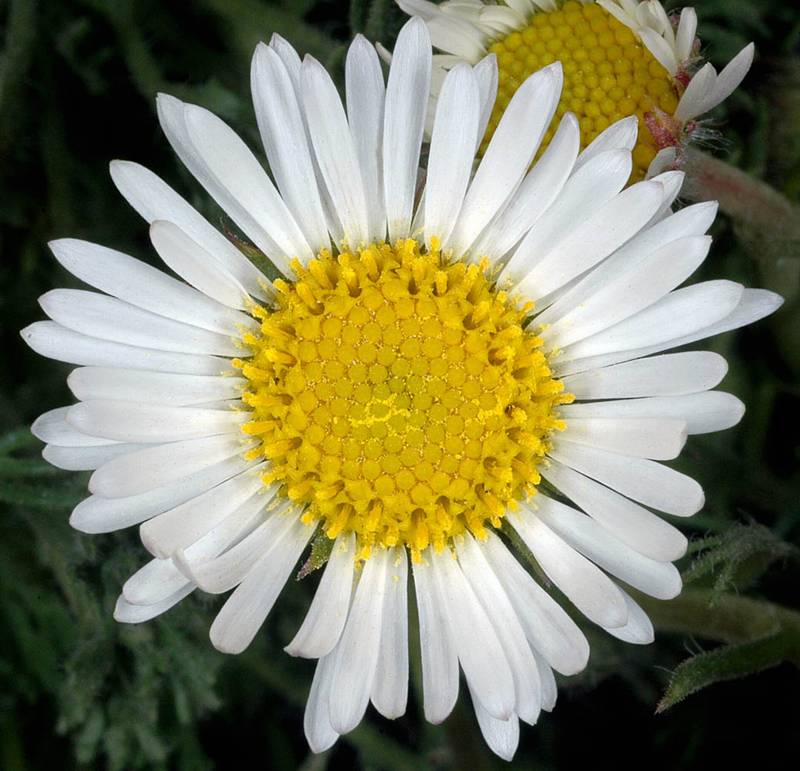Hosted by the University of Washington Herbarium, Burke Museum
Publication: Fl. Amer. Sept. 2: 535. 1813.
Origin: Native
Herbarium search: CPNWH
Notes: FNA20: "Correlations among ploidal level, breeding systems, and morphologic variation have been studied in detail in Erigeron compositus. Five informally designated population systems of diploids are geographically restricted (all of the northwestern United States and adjacent Canada) and primarily sexual, compared to the polyploids, which are agamospermous and apparently of hybrid origin, at least in some cases (R. D. Noyes et al. 1995; Noyes and D. E. Soltis 1996). Reduction in ray floret laminae usually is correlated with polyploidy. Plants with 1-ternately lobed leaves have been identified as var. glabratus, an element of variation that does not have a geographic pattern.
Among closely related species, Erigeron compositus is the only one that produces strongly thickened caudex branches; occasional collections show a tendency toward the slender, loose branches characteristic of the other species."
References:
Last updated 9/3/2020 by David Giblin.

